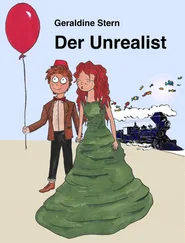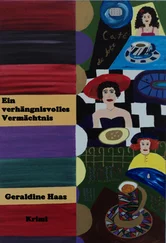She looked away then, and I wondered if she was aware that her own status was not unlike that of the horse: she, too, might be considered contraband of war. I accepted the tin mug she held out to me, drank the scalding contents, and passed it back to her so that she could serve another man. In the gray light—for it had rained hard all through the night, adding to the misery of the many men without a shelter even as cheerless as this house—I studied Grace’s features. She had aged in twenty years, certainly; there were fine lines etched around her eyes and mouth, and hard times had robbed her skin of its bloom. But she was handsome, still, and I could see the eyes of the men following her as she moved from one to another.
There was much to do that morning. We buried those we had recovered from the toll of the battle’s dead, laying them side by side in a shallow grave, each man with his name and unit inscribed on a scrap of paper placed in a bottle and tucked under his blouse, if indeed he still wore one. Before noon, the ambulances arrived on the Maryland side to fetch the wounded to Washington, so I lent my hand as stretcher bearer to move the men down to the boats, over the protests of my aching muscles. It was a labor of many hours, made miserable by the incessant rain and mud. I had no boots, so the viscous stuff tugged at my bare feet with a thirsty suck, and soon the skin was rubbed red raw. Across the river, as the day wore on, the hungry mules pulled in their traces, wrenching the wagons back and forth. The moans told the effect on those lying within. When the train finally set out, we had left with us only the walking wounded and those so gravely injured that McKillop had deemed they wouldn’t last the journey to Washington.
By daylight, some things were evident that darkness had concealed. It was clear that the ruined state of the house was not a matter of a few weeks at war. The signs of long decay were everywhere. The tobacco fields were overrun by tare and thistleweed; the plants, which should have been harvested for drying, stood blackened by frost. The pollarded fruit trees that had hedged the kitchen garden were sprouting unpruned; the long-stretching bean rows, once trim as a parade line, were leggy scraggles, while many beds stood unsown. I realized that the ruined gristmill I had passed in the darkness was the selfsame structure that as a going concern had so vexed Mr. Clement. Some calamity, clearly, had overtaken this place. I longed to learn more. But I was pressed hard all that day and into evening, and when I glimpsed Grace, she, too, was about myriad duties so that we had no chance to speak. The next day, our colonel came to make an assessment of our condition, and told us that we were left with no more than 350 effectives in a unit that had numbered more than 600.
McKillop proved himself a good judge of the men’s condition, as most of those he had marked for death were indeed gone within those two days. In the afternoons I helped to bury them with what ceremony conditions allowed.
I was coming from the corner of the field we had staked out for a burial ground when I saw Grace, walking on the terrace with a frail old man on her arm. I say walking, but in fact the progress the pair made was achieved in an odd gait for which there is no name. Augustus Clement—I cannot say I recognized him, but rather knew that it must be he—no longer had the posture of a man. His head was cocked forward and to one side, like a rooster’s, his ear almost set down upon his collarbone. Grace held his left arm in a firm grip and supported him further with a hand around his waist. His right arm seemed fixed to his side from shoulder to elbow, but the lower arm flapped wildly, his fingers fanning the air. He progressed by raising one knee almost waist high, swaying there for a long moment, then placing the toe tentatively onto the ground before letting the heel follow it, deliberate as a dancer.
Because they could make no very rapid progress, I soon came abreast of them and offered a greeting. Mr. Clement could not raise his head, but turned his body sidelong, his cloudy eyes groping to see who it was that spoke to him. There was a blankness to his expression, for it seemed that the muscles of his face were as palsied as the rest of him. Grace leaned down to his ear and spoke soothingly. A strange sound, a kind of donkey bray, issued from his slack lips. A bubble of saliva formed itself into a thread and dribbled down his chin. The flapping of his hand became more violent. Grace drew forth a handkin and wiped his face. “Mr. Clement is very agitated because of all the confusion here,” she said. “Forgive me, Mr. March, but I believe I had best return him to his room.”
“Can I help you? He seems so very frail.”
“I would be obliged,” she said, and so I took my place on the other side of the trembling body, and together we brought him within. She had made up a bed for him in the breakfast room, for it was long since he could negotiate the stairs. When we got there, after our tortuous progress, and Grace eased him down upon his couch, he gave a ragged sigh of relief. I held the basin as Grace bathed his face, and by the time she was done he seemed to have fallen into a doze.
Grace took the cloths and basin and withdrew to what had been a small butler’s pantry. There was a narrow pallet upon the floor, and this, I thought, must be where she now spent her nights. When she was done arranging his toilet things, she straightened and stared out a small casement window. The light was fading on the neglected fields, and the thistleweeds threw long shadows.
“Nothing beside remains. Round the decay of that colossal wreck…” She gave a deep sigh. “Mrs. Clement loved that poem, Mr. March. She had me read it until I had it by heart. I am glad she is not here to see what a wreck we are become.”
Grace turned from the window and came back into the breakfast room. “She died, you know, the autumn of the year you were with us. The mourning was very correct, but really, I was the only one for whom her death changed anything.” She sat then, upon a ladder-back chair. I imagine she often sat so, keeping vigil over the old man. Her back was very straight. She gazed at the hands folded in her lap, turning them over, as if their workworn condition still surprised her. It seemed that she wanted to say more, so I sat down also, in an armchair that I assumed was Mr. Clement’s accustomed place. It must have been months since she had had anyone to whom she could speak freely, for once she began on the tale, it poured out, a litany of loss.
“It all went on, just as it always had. I know that Mr. Clement’s daughter begged him to give me to her, to work at her plantation on the James. She claimed, quite rightly, that there would now be too few duties for me in this house. But Mr. Clement refused her and she departed here in a great huff. I expected to take up the duties of one of our house servants and have that unfortunate relegated to the fields, but nothing of the kind happened. If Mr. Harris suggested it, Mr. Clement did not heed him. I was left alone, to fill my hours as I wished. So I did what I always had done. I read, Mr. March, but with the difference that I chose volumes according to my own desires rather than Mrs. Clement’s. So it was for more than a year, until the following fall. Mr. Clement had gone ahead to his daughter’s plantation, where a family celebration was to be observed. His son was to follow on the eve of the gathering, and he decided he would bring a brace of wild turkey for the occasion. He went out alone, and did not come back. It was Mr. Harris who found him. Apparently, he had got his boot tangled in some honeysuckle thicket and his fowling piece discharged into his face. Mr. Harris carried the body home here and I tried to tell him that it would be best to get it in its box before the master returned. But he said he wouldn’t do anything until he knew Mr. Clement’s wishes. Well, of course Mr. Clement rode back here in a distraught state and insisted on seeing his boy. I had done my best, but that didn’t amount to much.” She looked at me then, and I could see the condition of the corpse just from the memory of it in her eyes. “He sat up all night by the body. The next morning, I noticed a tremor in his hand. I thought it was exhaustion, merely. But it was the beginning of his long decline.
Читать дальше












